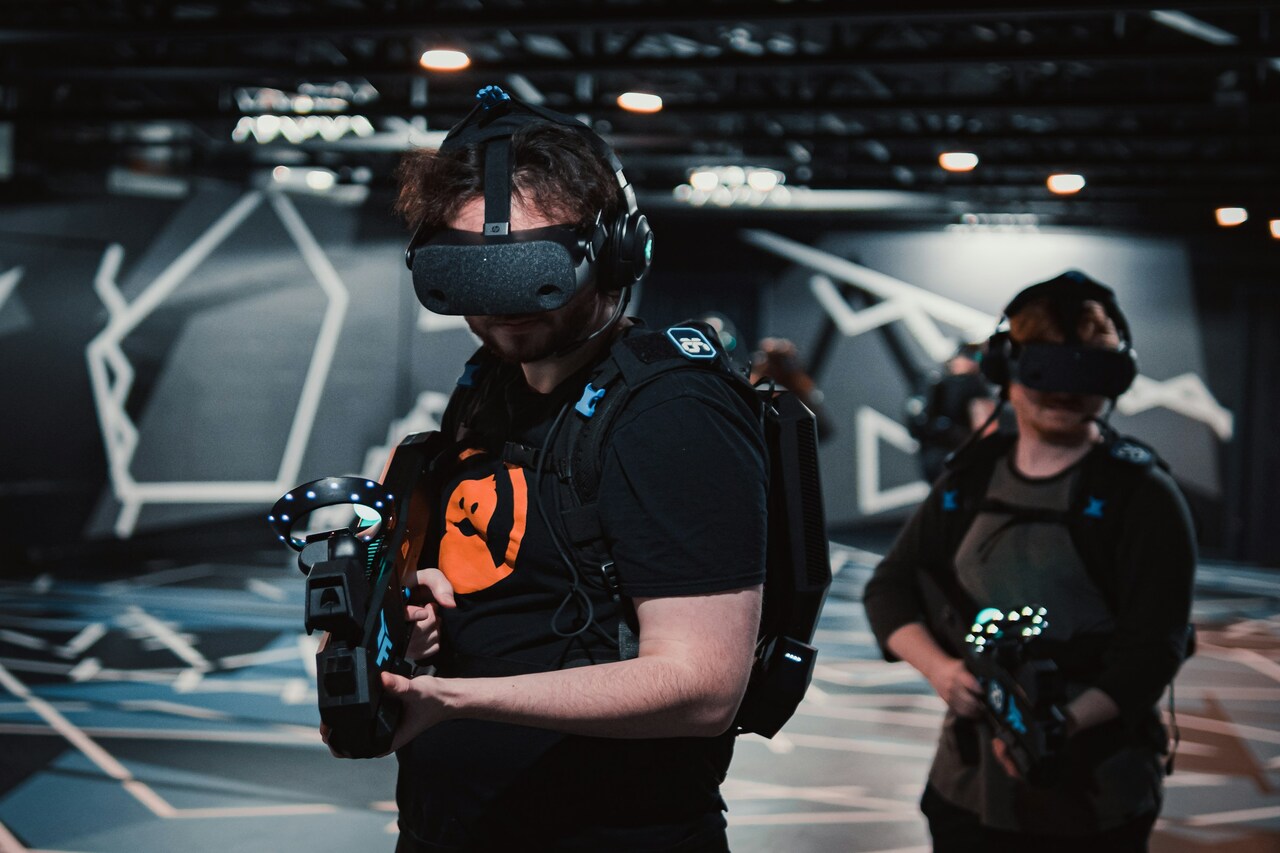If you dream of designing captivating virtual worlds and bringing characters to life through interactive experiences, game development offers a thrilling path for you. Even better, there are plenty of ways to break into this exciting career trajectory and make a good living from it. Let’s explore how to get into game development in five simple steps as you transform your passion for gaming into a fulfilling lifework.
The Basics of Game Development
Before delving into the step-by-step guide to becoming a successful game developer, let’s lay down the fundamental groundwork of what it entails.
With the industry set to grow by over 45% from 2024 to 2029, the outlook is definitely promising with lots of exciting opportunities. At its core, game development is a multidisciplinary field that combines creativity, technical skills and teamwork to bring interactive experiences to life.
Three Primary Phases
The process of developing a game is usually in three phases, and you’ll need to understand each one for a smooth production process. By grasping the basic concepts, you’ll be better equipped to navigate the upcoming steps toward a successful journey in game development.
- Pre-production: Involves initiating the game idea, developing the story, character features, environment details, and scoring parameters. At this stage, your team members will likely include game storytellers, graphic designers and animators.
- Production: Game developers bring designs and stories to life by writing code to create playable games. This phase is resource-intensive and the most challenging.
- Testing: This involves testing the game for bugs and ensuring it functions correctly before releasing it to the public. Tests may also include. Tests may include fun factor, reliability, and variability checks to perfect the game.
How to Get Into Game Development
If you’re considering a career as a game developer or designer, chances are you’re passionate about gaming. This zeal is a critical ingredient in propelling you forward along this path. Consider expanding your own gaming preferences beyond your favorite genres to cultivate a deeper understanding of what’s needed to succeed. This approach allows you to learn more about different gameplay mechanics, storytelling, user experience and other key elements.
With all that out of the way, here’s how to get into game development.
1. Select Your Specialization
The first step is figuring out which game development path excites you the most. You might be drawn to crafting stunning visuals, designing gameplay experiences or exploring the nitty-gritty of coding. Regardless, the field offers a niche for everyone. The most common roles in the industry are:
- Game designer: Shapes the core concept and mechanics for engaging and enjoyable gameplay.
- Programmer: Writes the code for gameplay, AI, physics and other relevant aspects of the game.
- Artist: Creates visual elements, characters, and environments using 2D or 3D art and animation techniques.
- Sound designer: Develops sound effects, music and voiceovers for a truly immersive gameplay experience.
- Writer: Beautifully crafts the game’s narratives, lore, storylines, character arcs and dialogues.
- QA tester: Ensures game quality by testing gameplay and performance.
Keep in mind that there’s no one-size-fits-all approach to game development. Take some time to explore these specialties and experiment with different aspects till you discover what truly ignites your passion.
2. Acquire the Relevant Skills
Educating yourself is key to becoming a game developer. While you don’t necessarily need a degree in game development to land a job in the field, having some relevant educational qualifications is vital. Consider pursuing an actual training course or specialized program in your main focus area while gaining exposure to other aspects.
You will also need to develop and hone the right technical proficiencies. The key components include:
- Game engines: These serve as the foundation of game development, providing tools and frameworks to build and deploy games across various platforms. Popular game engines like Unity and Unreal Engine streamline the development process.
- Coding languages: Programming lies at the heart of game development. Languages like C#, C++, and JavaScript are commonly used to create game logic, AI behaviors and interactions within games.
- Design principles: Understanding design elements such as game mechanics, level design, and player engagement is crucial for crafting compelling gameplay experiences.
3. Build a Portfolio
Getting into game development requires having a collection of projects you’ve completed across different genres and styles to demonstrate your skills and creativity. You have to be able to display your work so potential employers or investors know what to expect when engaging your services.
Don’t sweat it if you don’t have a ton of professional experience in the gaming space yet. Build simple games first and work your way through to more complex projects, showcasing your versatility and range as a game developer. Keep playing your favorite games and learning about new ones too, to maintain a fresh perspective and stay relevant.
Utilize platforms like GitHub for hosting code repositories and sharing your work with potential employers and collaborators. Recruiters value seeing a few paragraphs of code you’ve authored, underlining the need for clean, functional code rather than simple system calls.
4. Network and Collaborate
Alongside building your portfolio, make a point to connect with fellow developers, share experiences and establish a professional network within the game development community.
Online forums, social media groups and even local events can be a great way to find new collaborative projects while learning new skills.
5. Seek Employment or Start Your Own Project
Assess your long-term career aspirations. Working in a game development company can offer stability, mentorship and opportunities for growth within a structured environment. On the other hand, starting your own gaming project provides creative freedom, ownership over your work and the potential for entrepreneurial success.
Evaluate where you want to focus your skill development. Joining a game development company can expose you to diverse projects, team collaboration and industry best practices, enhancing your professional skills. Conversely, starting your own project allows you to delve deep into all aspects of game creation, fostering a well-rounded approach.
What’s the Average Game Developer Salary?
Glassdoor data shows an average game developer salary of $90,308 annually, with Tencent, Roblox and Epic Games listed among the highest payers. Crucial factors like experience, location, company size and specific job role cause amounts to vary. Research current trends in your specific area and industry sector for more accurate and up to date information.
What Qualifications Do I Need to Become a Game Developer?
A bachelor’s degree in computer science, programming or a related field is a basic requirement. Strong programming skills, knowledge of game engines and a solid portfolio of projects are also essential for entering the industry.
Proficiency in artificial intelligence and machine learning systems is also key. Several game studios already leverage generative AI to develop NPC dialogues and personalize user experience, so knowing your way around these programs can set you apart.
Is it Hard to Become a Game Developer?
Like any career path, becoming a game developer is not without challenges due to the amount of technical skills, creativity and dedication required. Competition can also be fierce, with 83% of executives in agreement about the industry’s need to innovate and its resulting effects on the job market.
Nevertheless, you can overcome obstacles and thrive in the dynamic world of game development with determination, continuous learning and practical experience. Remember to build a strong network and collaborate with other developers to stay ahead of the curve.
Get Into Game Development
In today’s tech-driven world, the demand for skilled game developers continues to soar, offering endless opportunities to shine in an ever-evolving industry. Now you know what it takes to succeed in the role — go make it happen.
Recent Stories
Follow Us On
Get the latest tech stories and news in seconds!
Sign up for our newsletter below to receive updates about technology trends




